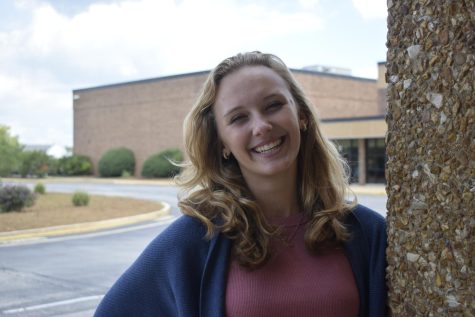In 2022, 424 Parkway West students took 801 Advanced Placement (AP) examinations, meaning that most took two or more tests, and over a third of the student population enrolled in an AP class. Because course registration next year begins Jan. 18, class rigor is at the forefront of students‚Äô minds. When registering for classes, students take higher amounts of AP classes to pad college applications. Still, we must question the importance of these classes over the rise of mental health awareness.¬Ý
Schools attempt to promote AP classes and student mental health simultaneously, but these two things are not “advertised” equally. Instead, mental health advocacy comes across as a box that needs to be checked. Dismissed mental health screenings and vague mental health meetings only acknowledge this point. Meanwhile, the campaign for AP classes seems to be promoted much more frequently. In correlation with the push for mental health, what type of course load is too much for students to handle?
Looking at the big picture, Parkway School District is well known for its push for APs. This high-achieving reputation puts pressure on students to meet this expectation and take on more significant challenges. Out of the 801 AP exams distributed in 2022, 82% received a score of three or higher on the AP exam.¬Ý
With course registration approaching, the district is promoting AP classes through counselor meetings and emails. This persistence puts pressure on students to take an increased number of AP classes when this promotion is set to provide equal opportunities among students. At the same time, while there‚Äôs a big push for AP classes, students ‚Äî like senior Noah Schell ‚Äî question why there isn‚Äôt a greater drive for mental health along with the push for AP classes.¬Ý
“Of course, mental health should come first; that is a no-brainer. There are ways that you can balance it so that you can take APs and still prioritize your mental health. I think West could do a better job focusing on mental health [which is] a bigger priority than APs,” Schell said. “Ultimately, it has to be the students themselves willing to [make mental health] a priority over class themselves.”
But while there appears to be a force of persuasion to take APs, there is no pressure to increase or uphold standards for AP classes such as attendance, the number of people taking exams or scores earned.¬Ý
‚ÄúThere’s never been any pressure or statement to say ‚Äòhey, we have to do X, Y or Z,‚Äô‚Äù assistant principal Mario Pupillo said. ‚Äú[We want] to have our student population taking AP classes to mirror our general population. We would like to see all of our students represented in our AP classes.‚Äù
English Department Chair and English teacher Shannon Cremeens believes that the AP push is not intended to convince kids to take more AP classes, rather to encourage more students¬Ý to explore the rigor. On the other hand, she thinks too many kids are taking too many AP classes.¬Ý
‚Äú[We advertise for AP classes] to make sure that we have equity among all students and that it is being offered and making sure all students feel like they could take it if they wanted to,‚Äù Cremeens said. ‚ÄúLet‚Äôs say I have never taken an honors class before in my life. Students are asking, ‚ÄòAm I worthy? Am I going to fail if I take this AP class?‚Äô The question comes down to if you really want to do this. [If you do], then you should be able to. Does that mean you are going to get an A? No. But you have exposed yourself to something that you are passionate about.‚Äù¬Ý
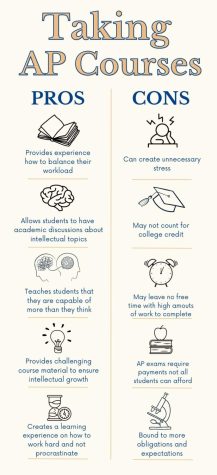
When deciding courses for the next school year, students should consider the benefits and drawbacks to determine what workload appeals most to their schedule. Schoolwork should not be the sole focus of a teenager‚Äôs life. Instead of trying to conquer the most academically, schools should influence teenagers to find a balance across aspects of their life, including school life, social life, home life and sports. Students who do the most feel like they struggle or miss out on other parts of their lives. As a student determined to achieve the most academically, senior Nikita Bhaskar plans to attend the University of Pennsylvania (Penn) and has taken 15 AP classes since eighth grade but can see the toll these courses have taken on her mental health.¬Ý
‚ÄúDuring class, I am very tired, mainly from staying up late to do homework for that class, which is counterintuitive. In the beginning, I‚Äôll sign up for an AP class because I am interested in the subject, but then as the semester goes on, it becomes harder to stay motivated in that class if the workload is unbearable,‚Äù Bhaskar said.¬Ý
An oversight Bhaskar noticed was that she was taking AP classes with other students who had a greater passion for learning. This may appear to be a positive impact, but this resulted in her not learning or interacting with any of her other friends or peers who don‚Äôt take AP classes. Often, we see the kids placed in gifted programs also following a heavy course rigor by taking multiple AP classes and then facing a phenomenon called ‚Äúburning out.‚Äù Pressuring ‚Äúgifted kids‚Äù into APs leads to less diversity in the groups of people we see in these classes because a test is required to be gifted but not to take AP classes.¬Ý
Another downside to the AP track that is often left out of the conversation is that not all colleges give college credit for some AP classes available. For example, the University of Missouri (Mizzou) requires an exam score of three or higher in AP Literature and AP Language; however, they only accept one of the two options for credit ‚Äî students cannot get credit for both. There are many courses Bhaskar has taken, knowing the exam credit will not transfer over to her college, but instead took because she feels more productive, learns more in these classes and practices her test-taking by signing up for the exams.¬Ý
‚ÄúThe college that I am going to doesn‚Äôt take the AP exam credit for some of the classes [I am taking], but without the course rigor of taking [AP classes], it would be much harder to get into any school,‚Äù Bhaskar said. ‚ÄúAs hard as AP classes can be, it is really hard if you are trying to go to a competitive school to not take AP classes because kids all over the country are [taking those courses], and that‚Äôs who you are competing with.‚Äù¬Ý
Even if a student decides to take AP courses, there is a difference between taking one and four. The discrepancies between these amounts can have a significant effect on students‚Äô mental health, which can influence stress levels, increase the risk of depression or anxiety and can decrease the value of self-worth.¬Ý¬Ý
‚ÄúWhen you break it all down, it‚Äôs not worth it. It‚Äôs not worth your health. Nothing is, really,‚Äù Cremeens said. ‚ÄúYes, I think AP classes are important. I think it’s awesome that we have them. I don‚Äôt think it’s important that they need to take more than two. Once you get to that point, you have to ask yourself, ‚Äòwhat am I doing this for?‚Äô‚Äù¬Ý
Still, some students may find themselves trying to take AP class after AP class; some say it is to challenge themselves, and some just need the academic rigor. However, there must be a balance between an academic and personal life to maintain mental health. Taking AP classes since he was a freshman, Schell quickly found ways to help manage his workload and relieve stress from his classes.¬Ý
‚ÄúIt comes down to setting my priorities straight and then making sacrifices when needed. Sometimes I know I need to get a homework assignment done, so I tell my friends I can’t go out for ice cream or whatever,‚Äù Schell said. ‚ÄúSometimes, I‚Äôm like, ‚ÄòI have done a lot of homework today [so] I’m just not going to do anymore. It’s not going to get done tonight, and that’s fine.‚Äô I have learned to be okay with it over the years. Usually, when it hits 10 p.m. or 10:30 p.m., if I still have homework, I‚Äôll be like, ‚ÄòWell, that sucks,‚Äô and I will cut my losses. It has taught me to prioritize and manage my time better.‚Äù
Although he supports students taking AP classes, Schell admits that Parkway should have a higher focus on mental health and do a better job of prioritizing it. Studies from medical journals suggest that AP students lose an extra hour and 40 minutes of sleep compared to non-AP course takers. This forecasts a problem related to mental health: sleep loss. Junior Serpil Kucukkaya relates to the stressors of taking too many AP classes. With a workload of four AP classes, Kucukkaya finds herself studying through many sleepless nights.¬Ý
‚ÄúSometimes [AP classes] can take a toll on my mental health because I’m so drained. [On] my third unit test, I was so drained from studying all night that I’m pretty sure I zoned out for a good five minutes during the test,‚Äù Kucukkaya said. ‚ÄúI couldn’t do anything, and I wasn’t able to finish the test. It takes a big toll because I have so much workload. I don’t just have these classes. I have to balance it with other [classes] too.‚Äù
As an advocate for mental health, Cremeens further stresses the importance of students taking time for themselves, exploring hobbies and spending time with friends and family. Nowadays, students put pressure on themselves to get the highest grades in the highest classes to compete for prestigious colleges. It seems impossible to attend a top school in current times without overwhelming schedules with AP classes and extracurricular activities because they are highly focused on college applications.¬Ý
Returning to school after the pandemic brought varied mental health issues to the surface. In addition to the mental health issues high schoolers already deal with day-to-day, students face issues stemming from the COVID-19 pandemic, which include anxiety over mask mandates lifting, lack of motivation or anxiety over school work and depression from lack of social behaviors and events. Schools like Kirkwood and Rockwood have provided specific resources for students dealing with these issues on their websites. They have had meetings with students and counselors to help ease these issues and provide better transitions. On the Parkway website, there are only resources for the Parkway Counseling Center and hotlines listed for varied uses. On the other hand, Kirkwood‚Äôs health services page includes personal counseling services, links to helpful healthcare tips, and extended resources for students and parents. Hopefully, we will see Parkway‚Äôs mental health resources extended to include some options available for students and teachers.¬Ý
Parkway must do a better job of helping encourage students to prioritize mental health over coursework and AP classes. Other schools in the St. Louis Metro area ‚Äî including East Saint Louis School District ‚Äî have moved to provide mental health days for students, which are excused absences from school days to provide students a chance to work on their mental health.¬Ý
With course registration crawling to the forefront of students‚Äô minds, our school should be encouraging a balance between AP courses and mental health. Parkway should offer resources like outside counseling services and options for mental health days to students. Counselors should address mental health issues before allowing students to take multiple AP classes, but this alone would be impossible. We should consider adding more mental health counselors to the staff to enable guidance counselors to focus on their job: to help lead kids through high school. We must stress the importance of enjoying the little things and being satisfied with taking lower courses to prioritize mental health.¬Ý
‚ÄúYou equate that you are not good enough when you don‚Äôt do well, and that’s truly not what that lesson is telling you,‚Äù Cremeens said. ‚ÄúThat lesson is telling you that you have overextended yourself. It is not telling you that you are stupid. It is telling you you do not have the time to devote to doing everything because you can‚Äôt do that. No one can do that. I think that is the issue [everyone needs to consider.]‚Äù¬Ý

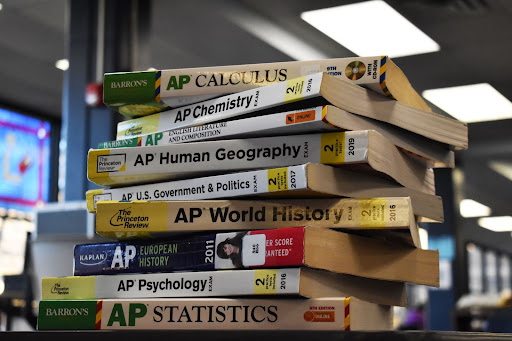
![Dressed up as the varsity girls’ tennis coach Katelyn Arenos, senior Kate Johnson and junior Mireya David hand out candy at West High’s annual trunk or treat event. This year, the trunk or treat was moved inside as a result of adverse weather. “As a senior, I care less about Halloween now. Teachers will bring their kids and families [to West’s Trunk or Treat], but there were fewer [this year] because they just thought it was canceled [due to the] rain. [With] Halloween, I think you care less the older you get,” Johnson said.](https://pwestpathfinder.com/wp-content/uploads/2025/10/DSC00892-1-1200x800.jpg)
![Leaning on the podium, superintendent Melissa Schneider speaks to Parkway journalism students during a press conference. Schneider joined Parkway in July after working in the Thompson School District in Colorado. “My plan [to bond with students] is to get things on my calendar as much as possible. For example, being in [classes] is very special to me. I am trying to be opportunistic [meeting] kids [and] being in [the school] buildings. I have all the sports schedules and the fine arts schedules on my calendar, so that when I'm available, I can get to them,” Schneider said.](https://pwestpathfinder.com/wp-content/uploads/2025/09/IMG_5425-1200x943.jpeg)

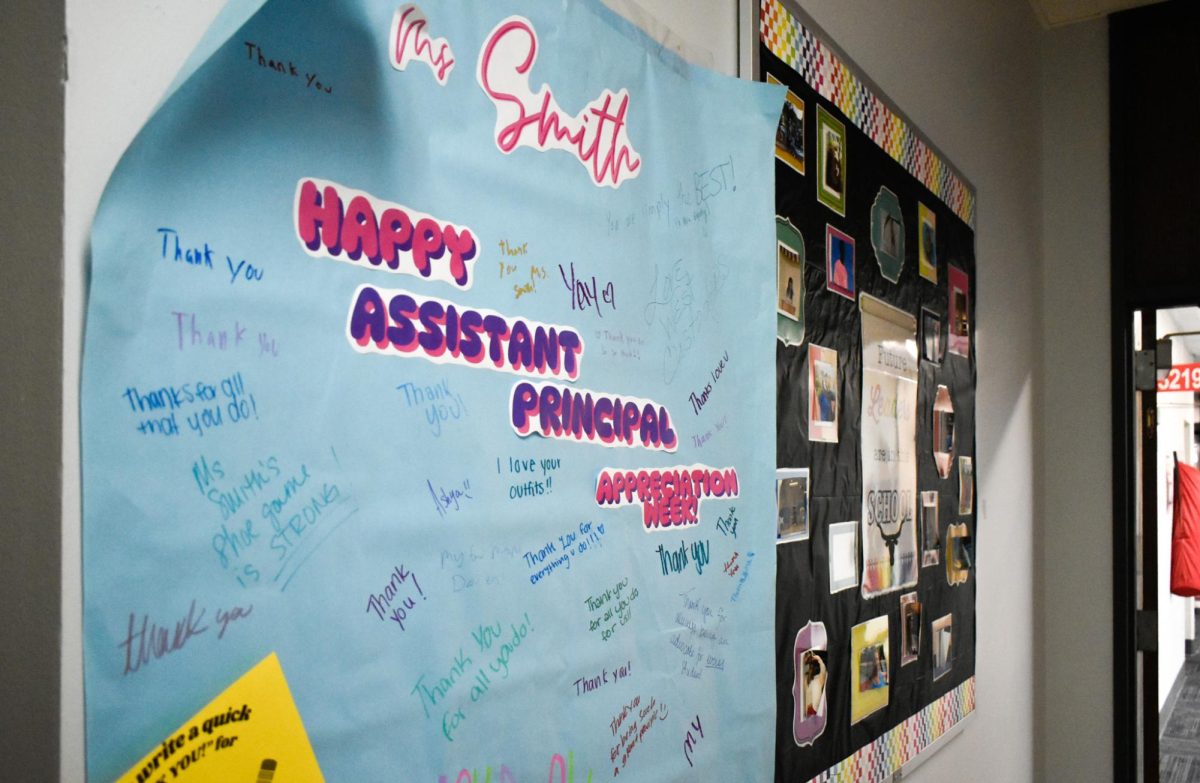
![Red, white and blue, the American flag holds the values of our democracy. The fight that we once endured has returned, as student journalists and senior correspondents across the country are losing their voices due to government control. “[Are] the White House and [the] government limiting free speech [and] freedom of the press? Yes [they are],” chief communications officer of the Parkway School District and former journalist Elisa Tomich said.](https://pwestpathfinder.com/wp-content/uploads/2025/03/Untitled-design-14.jpg)
![A board in the Parkway West counseling department displays pennants of selective universities. With a wide range of students interested in attending, it’s important that these schools have clear priorities when deciding who to admit. “[Washington University] had the major that I wanted, psychology, philosophy, neuroscience. That's a holistic study of the brain, and [WashU is] the only college in the world that offers that. That's the main reason I wanted to go; I got into that program,” senior Dima Layth said.](https://pwestpathfinder.com/wp-content/uploads/2025/02/Flag-1.png)
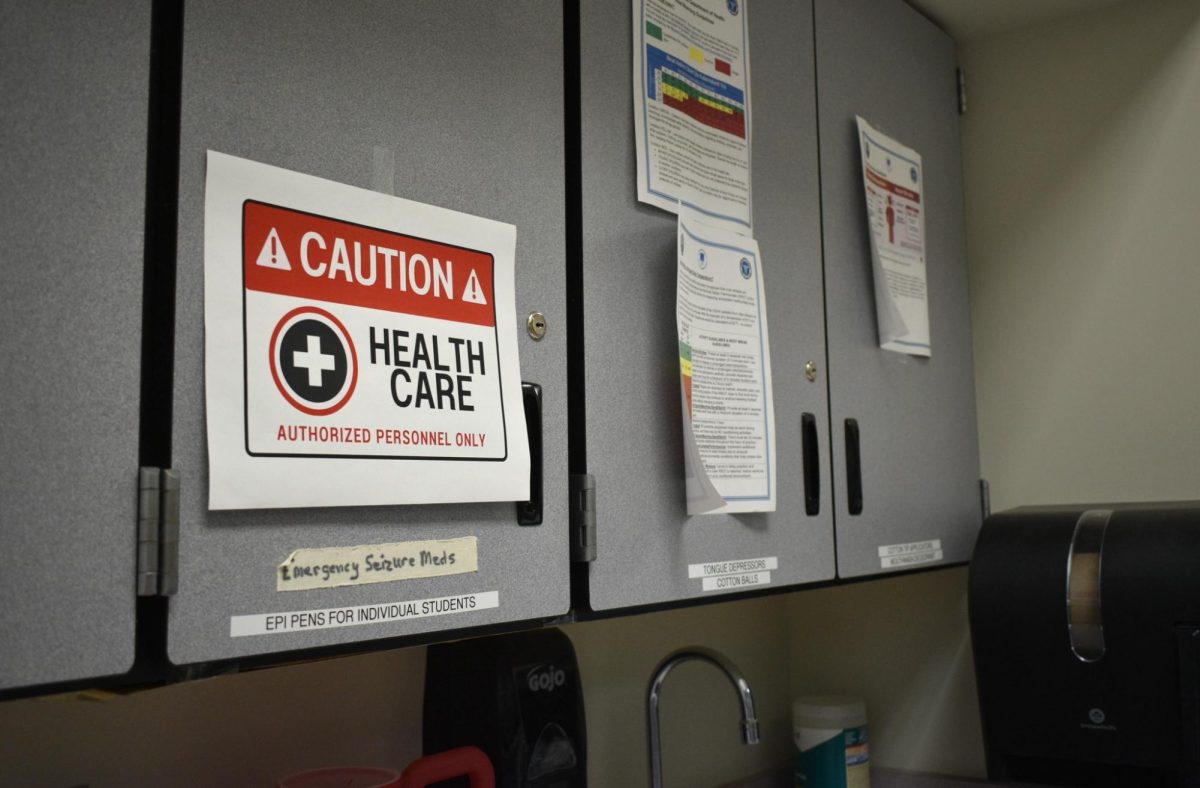
![Within the U.S., the busiest shopping period of the year is Cyber Week, the time from Thanksgiving through Black Friday and Cyber Monday. This year, shoppers spent $13.3 billion on Cyber Monday, which is a 7.3% year-over-year increase from 2023. “When I was younger, I would always be out with my mom getting Christmas gifts or just shopping in general. Now, as she has gotten older, I've noticed [that almost] every day, I'll open the front door and there's three packages that my mom has ordered. Part of that is she just doesn't always have the time to go to a store for 30 minutes to an hour, but the other part is when she gets bored, she has easy access to [shopping],” junior Grace Garetson said.](https://pwestpathfinder.com/wp-content/uploads/2024/12/DSC_0249.JPG-1200x801.jpg)

![Senior Sally Peters stands in the history hallway, contemplating her choices in the 2024 United States and Missouri elections on Nov. 5. As a member of Diplomacy Club, Peters has discussed key candidates and issues in contemporary American politics. “[As students], we're starting to become adults. We're realizing how much the policies that are enforced and the laws that make it through the House and Senate are starting to affect us. [Opportunities such as] AP [U.S.Government] and Diplomacy Club [make elections feel] a lot more real,” Diplomacy Club vice president and senior Nidhisha Pejathaya said.](https://pwestpathfinder.com/wp-content/uploads/2024/10/Flag-1-1.png)
![Sitting courtside before a junior varsity girls’ tennis match, senior Tanisi Saha rushes to finish her homework. Saha has found herself doing academic work during her athletic activities since her freshman year. “Being in sports has taught me how to stay organized and on top of my schoolwork. [With] a busy practice and game schedule, I’ve learned to manage my homework and study time better,” Saha said.](https://pwestpathfinder.com/wp-content/uploads/2025/11/DSC_0022-1200x800.jpg)
![Sophomore Maryem Hidic signs up for an academic lab through Infinite Campus, a grading and scheduling software. Some students enjoyed selecting their responsive schedule in a method that was used school-wide last year. “I think it's more inconvenient now, because I can't change [my classes] the day of, if I have a big test coming and I forget about it, I can't change [my class],” sophomore Alisha Singh said.](https://pwestpathfinder.com/wp-content/uploads/2025/10/DSC_0012-1200x801.jpg)
![Senior Dhiya Prasanna examines a bottle of Tylenol. Prasanna has observed data in science labs and in real life. “[I] advise the public not to just look or search for information that supports your argument, but search for information that doesn't support it,” Prasanna said.](https://pwestpathfinder.com/wp-content/uploads/2025/10/DSC_0073-2-1200x800.jpg)
![Junior Fiona Dye lifts weights in Strength and Conditioning. Now that the Trump administration has instituted policies such as AI deregulation, tariffs and university funding freezes, women may have to work twice as hard to get half as far. "[Trump] wants America to be more divided; he wants to inspire hatred in people,” feminist club member and junior Clara Lazarini said.](https://pwestpathfinder.com/wp-content/uploads/2025/05/Flag.png)
![As the Trump administration cracks down on immigration, it scapegoats many immigrants for the United States’ plights, precipitating a possible genocide. Sophomore Annabella Whiteley moved from the United Kingdom when she was eight. “It’s pretty scary because I’m on a visa. When my visa expires next year, I’m not sure what’s going to happen, especially with [immigration] policies up in the air, so it is a concern for my family,” Whiteley said.](https://pwestpathfinder.com/wp-content/uploads/2025/05/DSC_0077-7copy.jpg)
![Shifting global trade, President Donald Trump’s tariffs are raising concerns about economic stability for the U.S. and other countries alike. “[The tariffs are] going to pose a distinct challenge to the U.S. economy and a challenge to the global economy on the whole because it's going to greatly upset who trades with who and where resources and products are going to come from,” social studies teacher Melvin Trotier said.](https://pwestpathfinder.com/wp-content/uploads/2025/05/MDB_3456-1200x800.jpg)



![Some of the most deadly instances of gun violence have occurred in schools, communities and other ‘safe spaces’ for students. These uncontrolled settings give way to the need for gun regulation, including background and mental health checks. “Gun control comes about with more laws, but there are a lot of guns out there that people could obtain illegally. What is a solution that would get the illegal guns off the street? We have yet to find [one],” social studies teacher Nancy Sachtlaben said.](https://pwestpathfinder.com/wp-content/uploads/2025/01/DSC_5122-1200x800.jpg)

![Sophomore Shree Sikkal Kumar serves the ball across the court in a match against Lindbergh. Sikkal Kumar has been a varsity member of the varsity girls’ tennis team for two years, helping her earn the number two rank in Class 2 District 2.“When matches are close, it’s easy to get nervous, but I [ground] myself by[staying] confident and ready to play,” Sikkal Kumar said.](https://pwestpathfinder.com/wp-content/uploads/2025/11/DSC2801-1200x798.jpg)
![Focused on providing exceptional service, sophomore Darsh Mahapatra carefully cleans the door of a customer’s car. Mahapatra has always believed his customers deserve nothing less than the best. “[If] they’re trusting us with their car and our service, then I am convinced that they deserve our 100 percent effort and beyond,” Mahapatra said.](https://pwestpathfinder.com/wp-content/uploads/2025/10/DSC_0018-1200x800.jpg)
![Sophomore Aleix Pi de Cabanyes Navarro (left) finishes up a soccer game while junior Ava Muench (right) warms up for cross country practice. The two came to Parkway West High School as exchange students for the 2025-2026 school year. “The goal for the [exchange] program is to provide opportunities for both Parkway students and our international exchange students to learn about other cultures, build connections and become confident, capable, curious and caring — Parkway’s Four C’s — in the process,” Exchange Program Lead Lauren Farrelly said.](https://pwestpathfinder.com/wp-content/uploads/2025/10/Feature-Photo-1200x800.png)
![Gazing across the stage, sophomore Alexis Monteleone performs in the school theater. The Monteleone family’s band “Monte and the Machine” has been releasing music since 2012, but Alexis started her own solo career in 2024 with the release of her first single, Crying Skies. “My whole family is very musical, [and I especially] love writing [songs with them],” Monteleone said.](https://pwestpathfinder.com/wp-content/uploads/2025/09/DSC7463-1200x798.jpg)

![Leaping through the air, senior Tyler Watts celebrates his first goal of the season, which put the Longhorns up 1-0 against the Lafayette Lancers. Watts decided to play soccer for West for his last year of high school and secured a spot on the varsity roster. “[Playing soccer for West] is something I had always dreamed of, but hadn’t really had a good opportunity to do until now. It’s [really] fun being out [on the field], and I’m glad I decided to join the team. It’s just all about having fun with the boys and enjoying what time we have left together,” Watts said.](https://pwestpathfinder.com/wp-content/uploads/2025/09/DSC_1951-1200x855.jpg)

![Pitching the ball on Apr. 14, senior Henry Wild and his team play against Belleville East. Wild was named scholar athlete of the year by St. Louis Post-Dispatch after maintaining a high cumulative GPA and staying involved with athletics for all of high school. “It’s an amazing honor. I feel very blessed to have the opportunity to represent my school [and] what [it] stands for,” Wild said.](https://pwestpathfinder.com/wp-content/uploads/2025/05/unnamed-6-1200x714.jpg)
![Freezing in their position, the Addams Family cast hits the “rigor mortis” pose after cast member and senior Jack Mullen, in character as Gomez Addams, calls out the stiff death move. For the past four months, the combined company of cast members, orchestra pit, crew and directors all worked to create the familial chemistry of the show. “I’m excited for [the audience] to see the numbers, the music, the scenes, but I also just love all the technical aspects of it. The whole spectacle, the costumes, makeup and the people that put in the work backstage in order to make the show successful on stage. I’m excited for people to see and appreciate that,” Mullen said.](https://pwestpathfinder.com/wp-content/uploads/2025/03/DSC0116-1200x800.jpg)
